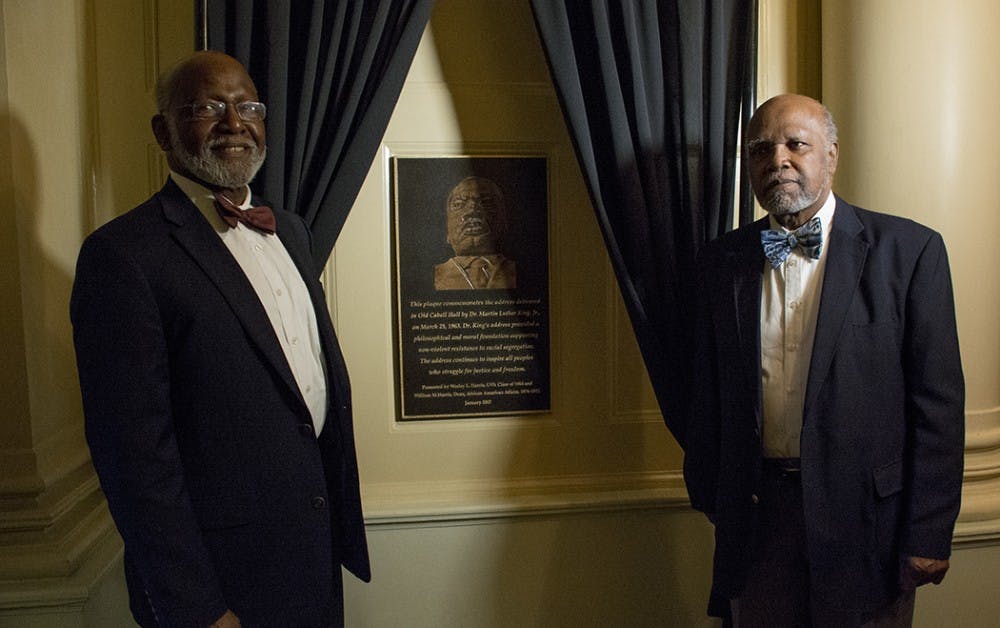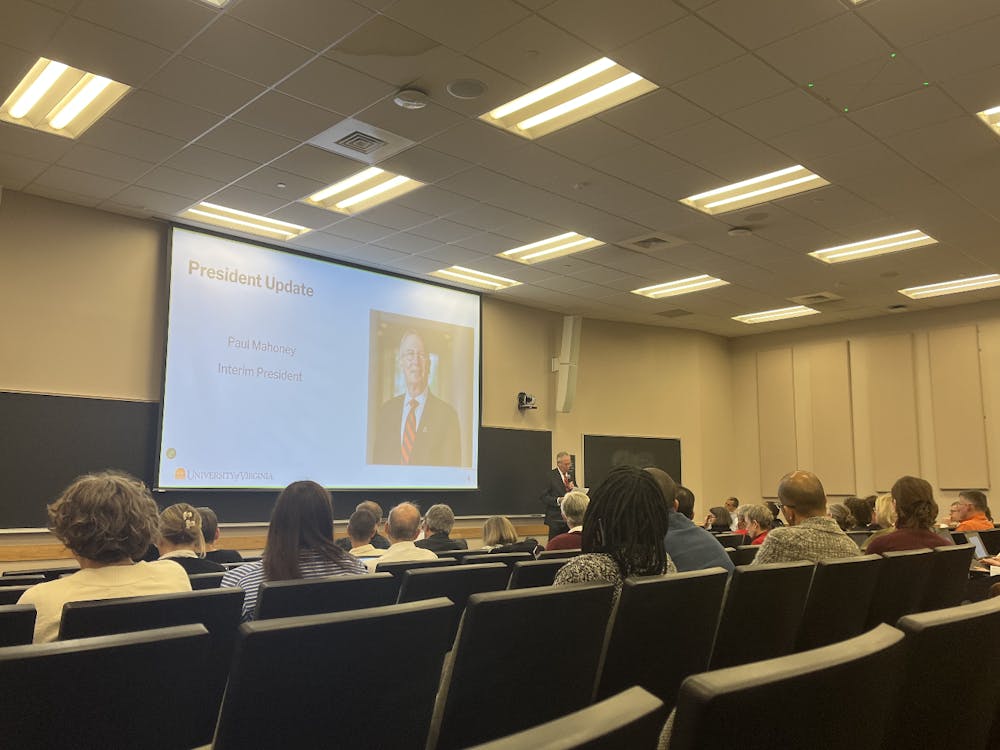Brothers Wesley Harris and William Harris, former dean of the University’s Office of African American Affairs, unveiled a plaque in Old Cabell Hall Monday commemorating Dr. Martin Luther King Jr.’s 1963 visit to the University.
The unveiling ceremony, included a short speech by University Architect Alice J. Raucher, which was given after the Harris brothers pulled back the curtains covering the plaque.
Wesley Harris graduated from the Engineering School in 1964 and was one of the students instrumental to bringing King to the University, as he served as the chairman for the local chapter of the Virginia Council on Human Relations at the time. King’s March 1963 speech was centered around issues of segregation during a time in which racial tensions were high, even in Charlottesville.
William Harris was dean of the Office of African American Affairs in 1976-81.
Raucher called the plaque a symbol of diversity, advocacy and inclusion, and thanked the Harris brothers for their donation. She also thanked her colleague, Brian Hogg, who helped spearhead the project.
“I don’t think that when Standford White designed the building, he could’ve imagined the continued significance of [this location],” Raucher said.
Raucher also commented on the significance of King’s timing when he visited in early 1960s, which occurred just a month before the Birmingham campaign, and shortly before the historic March on Washington, where King delivered his famous “I Have a Dream” speech.
King said 1963 was not an end, but a beginning, during his visit to the University, Raucher said.
“This plaque dedicated here today will serve as a reminder of that beginning,” Raucher said.
Wesley Harris’ inspiration to donate the plaque came after he visited Princeton University and saw a similar one installed there, he said in an interview with The Cavalier Daily.
“I would hope that those of us who haven’t will take a moment to reflect upon that plaque and understand his gift, his challenge to resist injustice,” Harris said.
Raucher expressed a similar sentiment about the lasting impact of King’s speech and its relevance at the University today.
“We sincerely hope this plaque will not only commemorate Dr. King’s visit, but also the continued work here at the University of Virginia, to acknowledge our past and build our future,” Raucher said.







